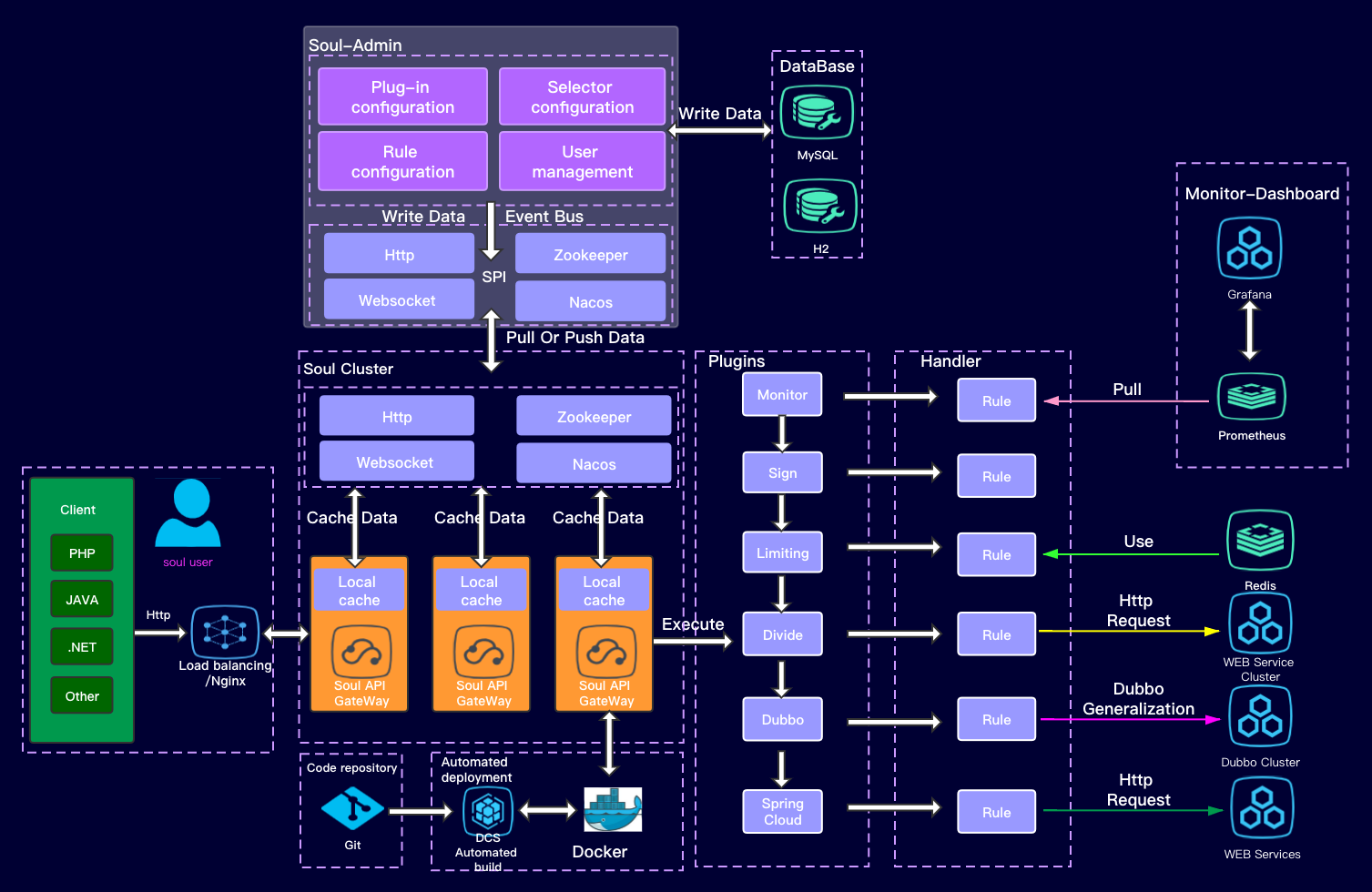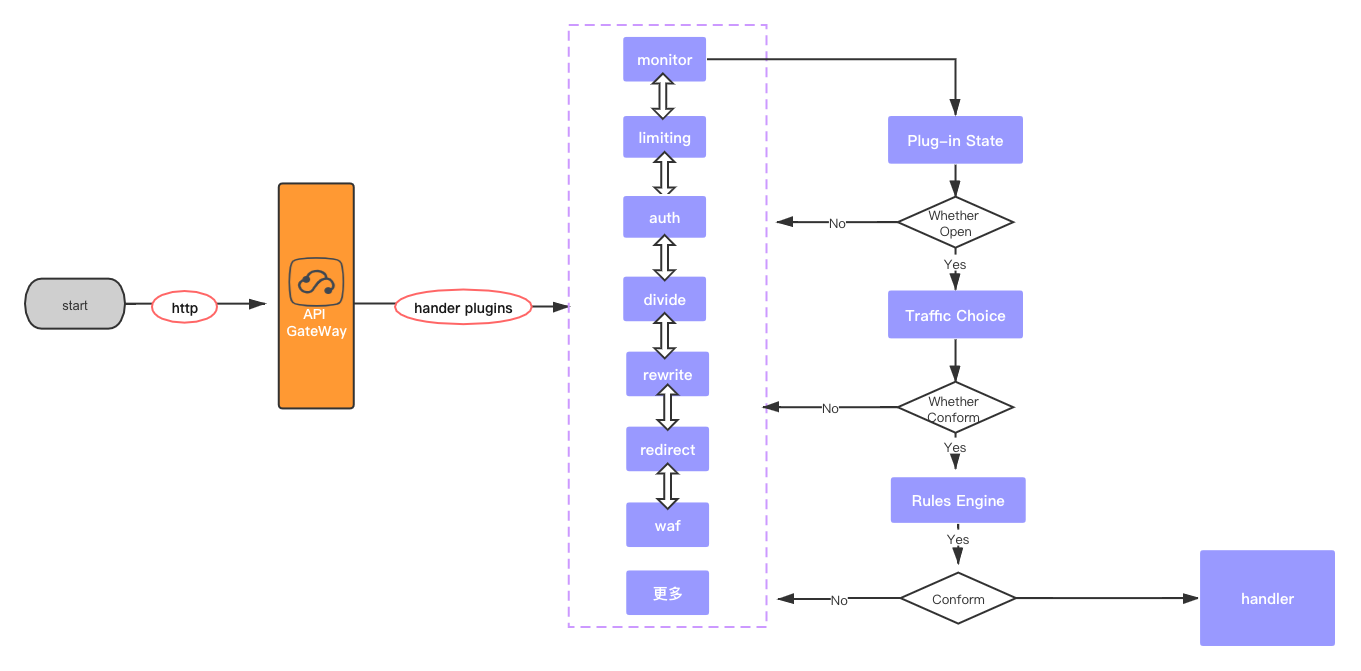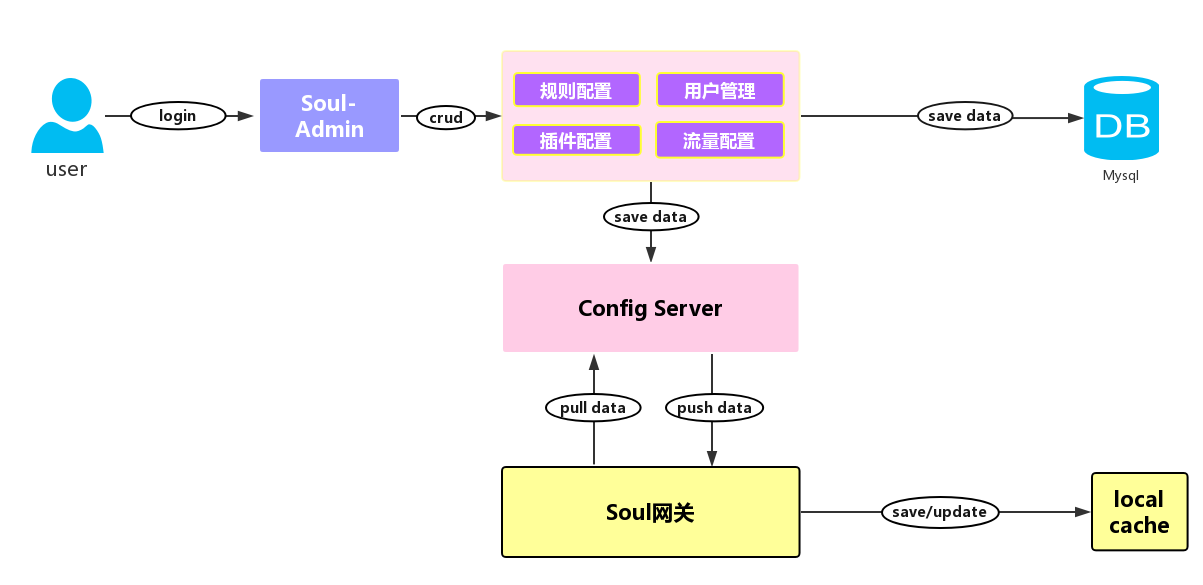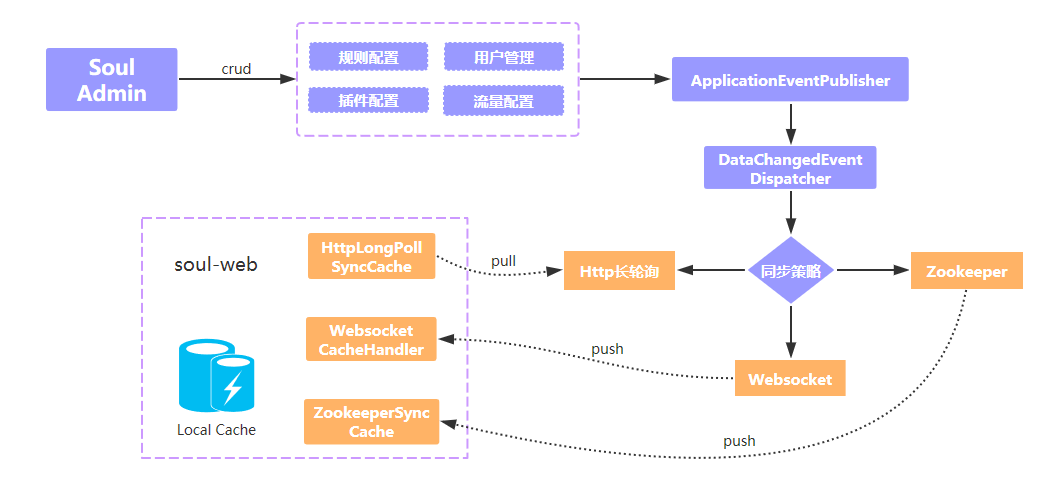| commit | cc090cc3f01c2c96c7bce73bf9f8974de6cb9032 | [log] [tgz] |
|---|---|---|
| author | xiaoyu <549477611@qq.com> | Sun Jun 14 17:44:28 2020 +0800 |
| committer | GitHub <noreply@github.com> | Sun Jun 14 17:44:28 2020 +0800 |
| tree | e2aedaa7acf4133b6b31545229a781b2c3dbe19f | |
| parent | 058c50fc509ef3cf67ba1121108a370805f6e87b [diff] | |
| parent | d58ae073a2092ee2fed7df35cb5403b6dc60a1ee [diff] |
Merge pull request #232 from songdinghy/2.1.2-RELEASE 健康检查报错问题修复


soul-admin : Plug-in and other information configuration management background
soul-bootstrap : With the startup project, users can refer to
soul-common : Framework common class
soul-configuration : zookeeper configuration project
soul-spring-boot-starter : Support for the spring boot starter
soul-web : Core processing packages include plug-ins, request routing and forwarding, and so on
soul-client : User fast access, automatic new metadata, rule selector
soul-extend-demo : Demo of the extension point
soul-test : the rpc test project
It provides plugins such as current limiting, fusing, forwarding, routing monitoring and so on.
Seamless docking with HTTP,Restful,websocket,dubbo and springcloud.
Plug-in hot plug, users can customize the development.
Selectors and rules are dynamically configured for flexible matching.
Support for cluster deployment.
Support A/B test and grayscale publishing。
Whenever a request comes in ,Soul Execute all open plug-ins through the chain of responsibility.
Plugins are the heart of soul And plug-ins are extensible and hot-pluggable.
Different plug-ins do different things
Of course, users can also customize plug-ins to meet their own needs.
If you want to customize, see plugin-extend
According to your HTTP request headers, selectors and rules are used to route your requests.
Selector is your first route, It is coarser grained, for example, at the module level.
Rule is your second route and what do you think your request should do,For example a method level in a module.
The selector and the rule match only once, and the match is returned. So the coarsest granularity should be sorted last.
All data is cached ConcurrentHashMap in the JVM So it's very fast.
When the user is managing changes in the background,
Soul dynamically updates the cache by listening to the zookeeper node, websocket push,http longPull.


soul-admin.jar> wget https://yu199195.github.io/jar/soul-admin.jar
soul-admin.jar> java -jar soul-admin.jar --spring.datasource.url="jdbc:mysql://your ip:3306/soul?useUnicode=true&characterEncoding=utf-8&zeroDateTimeBehavior=CONVERT_TO_NULL&failOverReadOnly=false&autoReconnect=true&useSSL=false" --spring.datasource.username="you username" --spring.datasource.password="you password"
visit : http://localhost:9095/index.html username:admin password :123456
get soul-bootstrap.jar
> wget https://yu199195.github.io/jar/soul-bootstrap.jar
soul-bootstrap.jar java -jar soul-bootstrap.jar
JDK 1.8+
Mysql
Soul Has been used in our production environment,Its performance and flexibility allow us to use up very cool.
In double 11, we deployed 6 clusters, which supported a large volume of our business.
If you want to use it, you can see Document
按照登记顺序排序,更多接入公司,欢迎在https://github.com/Dromara/soul/issues/68登记(仅供开源用户参考)